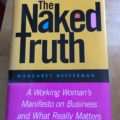When I first met Enrico, I spoke no Italian, and at some point early in the relationship I decided to learn it. I already had one language under my belt: I had studied Hindi in high school and college, and spoke it fluently. Italian is a lot easier. In terms of pronunciation, it’s one of the simplest languages on earth, having far fewer discrete sounds even than English (whereas Hindi has far more: I had had to learn to distinguish between four different T sounds and four different D sounds – aspirates and non-aspirates, dental and palatal).
Italian grammar is more complex than English, but far less complex than Hindi (not as many inflections). Italians are so delighted that you’re even trying that they will forgive a multitude of errors, which can be a handicap for a learner as they often won’t tell you when you make mistakes.
I took Italian classes at the US Department of Agriculture in Washington, DC. Taking a night class once or twice a week is not an efficient way to learn a language. I got to where I understood a lot, but couldn’t say much. That was cured in the winter of 1989, when Rossella was a baby. She and I stayed a month in Rome with my in-laws, while Enrico was hopping back and forth across the Atlantic, working on his PhD at Yale and searching for an academic job in Italy. My mother-in-law speaks no English (she does speak French), so I was forced to speak Italian. By the end of the month, Enrico’s friends were all commenting on the huge improvement in my Italian.
My spoken Italian took another leap in 1991, when I began working for Fabrizio. He conducted the interview entirely in Italian, and never mentioned that he spoke English. And he had no qualms about correcting my Italian. Some weeks after I started, I ran across a document in the office, written in near-perfect English. “Who wrote this?” I asked. “He did,” said the secretary. But, to this day, Fabrizio refuses to speak English with me. He claims that he can’t understand my accent, though he understands everyone else, American or British (or Chinese or Japanese), just fine. I don’t mind speaking only Italian with him, but it gets awkward when other non-Italian-speakers are around, as I then have to translate for their benefit.
I developed a new skill with Fabrizio: simultaneous translation and transcription. If he wanted something written in English, he would dictate it to me in Italian, and I would type it straight out in English. I’m not sure I could do simultaneous translation if I had to speak, but I can do it typing, as fast as he can talk.
All of my in-laws are university professors, so from them I learned excruciatingly correct Italian. My suoceri (mother- and father-in-law) never use strong language. At most, my suocero says things like “Perdiana!” or “Perbacco!” – “by Diana” or “By Bacchus” – I suppose it’s okay to take the name of the lord in vain, so long as it’s not a god you actually believe in. Or he says “Per tutti i dindiridin.” Don’t ask me what that means.
From Fabrizio, I learned a very different category of Italian. Not that it hasn’t been useful.








